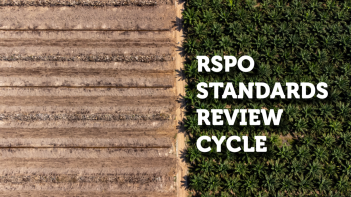| Click icon to download PDF |
KOTA KINABALU, 30th July 2013: Unproductive debate over demand for palm oil and its impact on indigenous peoples’ rights, crucial wildlife habitats and environmental pollution have led to several non-governmental organisations joining hands to form a coalition.
The Malaysian Palm Oil NGO Coalition, or MPONGOC, wants to engage in constructive and on-going dialogue with the industry via the Malaysian Palm Oil Association (MPOA), Malaysian Palm Oil Board (MPOB) and the Malaysian Palm Oil Council (MPOC), and with other stakeholders as part of its advocacy work.
MPONGOC aims to influence land use policy and decision making, and is also working towards advocating consumer responsibility, according to a statement issued today to announce the formation of the coalition.
Strengthening implementation of best environmental management practices including enforcement of pollution regulations, building capacity for smallholder verification and best practices, supporting community-based organisations largely made up of indigenous people to engage with the industry on their own terms, and mainstreaming awareness on human wildlife conflict are other objectives that the MPONGOC has come up with.
Current members are Borneo Rhino Alliance (BORA), Bornean Sun Bear Conservation Centre (BSBCC), Indigenous Peoples Network of Malaysia (JOAS), Land Empowerment Animals People, (LEAP), Malaysian Nature Society (MNS) Sabah branch, Partners of Community Organisations (PACOS) Trust and WWF Malaysia. The Borneo Conservation Trust (BCT) is acting as an observer.
LEAP Executive Director Cynthia Ong said MPONGOC was born out of a growing need for local and regional groups to step up, organise and engage constructively with the palm oil industry, noting its emphasis in national and state development plans such as the Economic Transformation Programme (ETP) and Sabah Development Corridor (SDC).
“We intend to engage with all parties, bring our collective voice, leadership, skills and experience to the table to deepen and expand dialogue between civil society, industry and government in the vital conversation of sustainability for all.
“We also wish to state that MPONGOC is in full support of the Roundtable on Sustainable Palm Oil (RSPO) process and we are committed to engaging and contributing to its success,” Ong said.
BORA Executive Director Datuk Dr Junaidi Payne said the coalition is not out to create a whole new process, but rather, help the palm oil sector play a more positive role in the natural and human environment.
“One observer said this year that RSPO is dictating that oil palm growers minimise greenhouse gas emissions. In the same week another observer said that RSPO has no mechanism to address the palm oil industry's globally significant contribution to greenhouse gas emissions.
“Both had just read the RSPO’s revised principles and criteria agreed by producers and NGOs. Clearly, there is a need for better engagement in the palm oil industry,” Junaidi said.
WWF-Malaysia Executive Director/CEO Dato’ Dr Dionysius Sharma said the NGO recognises that palm oil is a basic foodstuff with high consumer demand, and that it is increasingly used to replace fossil fuels in the transport and energy sectors of mainly developed countries.
“While recognising that the oil palm industry generates valuable foreign exchange earnings and employment opportunities for producing countries like Malaysia, WWF-Malaysia is concerned at the prospect of the industry continuing to expand and operate in an unsustainable manner.
“We hope that through MPONGOC, the industry, regulators, financiers, buyers and other stakeholders could work collectively to develop and promote the adoption of environmentally appropriate, socially beneficial and economically viable practices in the oil palm industry.
“At the same time, Malaysian consumers are also advocated to consume palm oil that is produced by plantations that are RSPO certified,” Dr Dionysius said.
MPONGOC is also working with the Indigenous Peoples Network of Malaysia (JOAS) to organise a workshop that will gather indigenous leaders nationwide to discuss land issues in relation to the palm oil industry.
PACOS Trust Executive Director Anne Lasimbang said indigenous people often find themselves at the losing end in oil palm development.
“Many have lost native customary rights land to large estates. This is a serious issue and one that is largely swept under the carpet. We see MPONGOC as being able to offer solutions by involving all stakeholders,” she said.
BCT Head of Conservation and Research Raymond Alfred said it is hoped that the coalition will be able to initiate transparent consultation with oil palm companies that were found to have encroached into riparian reserves and come up with win-win solutions.
“MPONGOC could also support effective consultation with government to review existing policies if necessary to enhance implementation of relevant monitoring and enforcement programmes to secure biodiversity, the wildlife corridor and habitat protection,” he said.
The coalition is also collaborating with international NGO counterparts, which could lead to better understanding of oil palm issues in the region and its importance to the Malaysian economy.
-END-
Keep reading
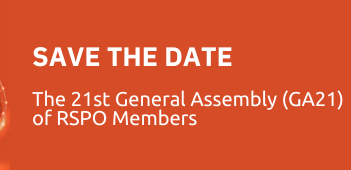
Save the Date: The 21st General Assembly (GA21) of RSPO Members
Interim Measure for Requirements 5.1.5 and 5.1.6 of RSPO Rules on Market Communication and Claims 2022
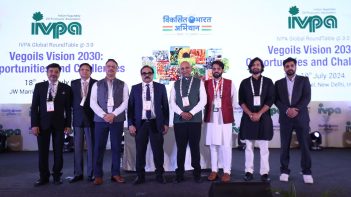
RSPO Partners with Indian Vegetable Oil Producers’ Association (IVPA) to Promote Sustainable Cultivation and Palm Oil Imports in India
Call for Expression of Interest: Independent Investigation of a Complaint
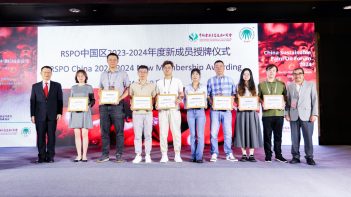
2024 China Sustainable Palm Oil Forum Calls for Bold Action on Supply Chain Sustainability
Reminder: Important Updates on Shared Responsibility
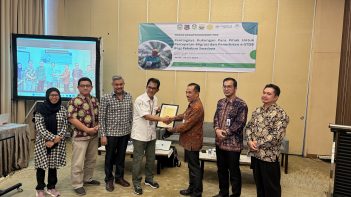
Smallholder Inclusion in Indonesia: Over 1,000 Farmers Registered in RSPO Pilot Districts
